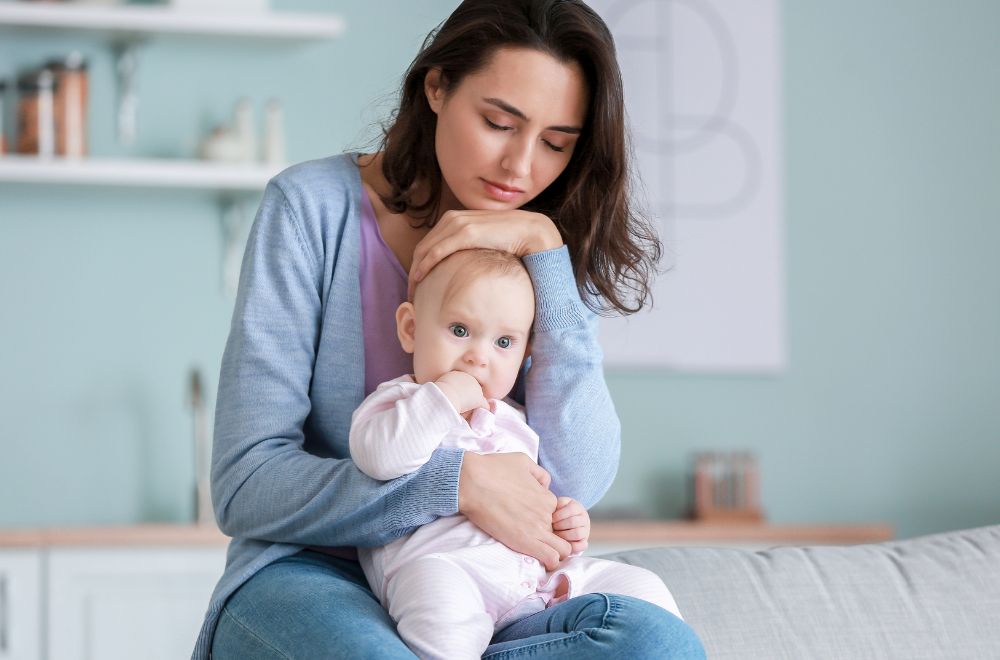
Postpartum Depression: Causes & Treatment
Everyone wants to hold the baby, but who holds the mom?
I came across this quote recently on social media and it seemed to perfectly sum up the plight of plenty of modern women, who were grieving the passage of an earlier identity while grappling with the new role and its responsibilities, their changing bodies & raging hormones while trying to find a semblance of hope in finding her own feet and individuality eventually. The prevalence of maternal postpartum depression in India is 22% (as per a review article which collated data from 2000 to 2022); that roughly translates to about 1 in 5 women who experience clinical depression post partum. This number, however, needs to be interpreted with caution, keeping in mind the mental wellness literacy in the Indian population, particularly mothers and the expectations they are supposed to meet. I still remember the time during my postgraduate years, when I was first introduced to this topic, going up to my mother and asking if she had ever felt this way during her pregnancy and pat came the response "No! Whyever would anyone be sad about having a child?" sounding almost cross with indignation that i could even insinuate such an idea! Though it was gladdening to hear that she had not endured such an adversity, this response would probably be the most common one in her generation (of mothers), perhaps because of the lack of mental health awareness at the time; but also due to the fact that the societal conventions at the time dictated that such an idea was both incredulous and impossible; That "no good mother" would/ should feel this way. The unwritten rules of society then (even now sadly in many families) demanded that the ideal mother should be able to take care of the baby, herself and the family with a smile on her face and twinkle in her eye because she has been chosen to bear the blessing of the family.
While the physical demands on the mothers body had always been sympathized with and attended to, the mental health concerns of the select few, who were still at wit's end trying to make sense of the new role, were met with dismissal, minimization, scorn and cynicism. Naturally the woman now additionally doubted herself and guilt came into the already long list of negative emotions she was experiencing and expressing her despair was ruled out for fear of being judged.
While lack of mental health awareness and expectations dictated by societal mores were significant contributors in the early days, the changing family types and dynamics in the changing landscape of 21st century added to the turmoil. The most common assertion is laid on the change from the yesteryear joint family type to the more prevalent nuclear family type today, being the cause for lack of support to an already overwhelmed mother; though it does carry truth in a few cases, many a time an unsupportive/unempathetic family environment with expectations and demands can further erode a mothers already waning mental strength. Furthermore the woman of today's age who wishes to exert her individuality and independence in various previously male dominated work domains fears a loss of self in this time of transition. Whatever the reason, the woman with postpartum depression often presents with a persistent low mood, feelings of overwhelming guilt, fear and anxiety about her abilities to handle the new role (imposter syndrome) easy irritability, frequent crying spells, low self esteem, worthlessness and being unable to enjoy the pleasures of a new mom; if severe, she may even present with symptoms of neglecting care of baby and self, sleep and appetite disturbances and at times even threaten to harm self and the baby (postpartum psychosis). It is important for the family to be aware of these red flag symptoms and often check in with the new mother to enquire about her mental health particularly in women who have had previous mental health challenges (or have a family history of the same), difficult and challenging pregnancy/delivery, physical health issues in mother or child. The trump card in many of these situations is the spouse; their ability to stand shoulder to shoulder to share the responsibilities and being empathetic towards the new mother, lending a friendly ear sans judgement and acting as her sounding board would aid immensely in the process of acclimatisation. Ultimately kindness and empathy go a long way in the wellness of both the mother and her child.
So after we finish celebrating motherhood on mothers day (also every day)
Let's take a moment to ask new mothers how they are doing and if they are feeling okay!
Treatment of Postpartum Depression at Maarga Mindcare Hospital
Our best doctors for postpartum depression prescribe antidepressants to assist enhance your temper by affecting your brain's chemistry. However, it can take some weeks to observe any modifications. Consulting a psychologist or psychiatrist in Bangalore can provide you with higher techniques to manage your emotions. Additionally, spending time with circle of relatives and buddies can help fight loneliness. Eating wholesome, going to mattress early, and getting a full eight hours of sleep also are beneficial for treating postpartum depression.
We offer best postpartum depression treatment in Bangalore. If you or a person you understand has been struggling with postpartum despair, reach out to our postnatal despair counseling offerings to examine extra approximately the symptoms and available treatments.


Social Media Sharing